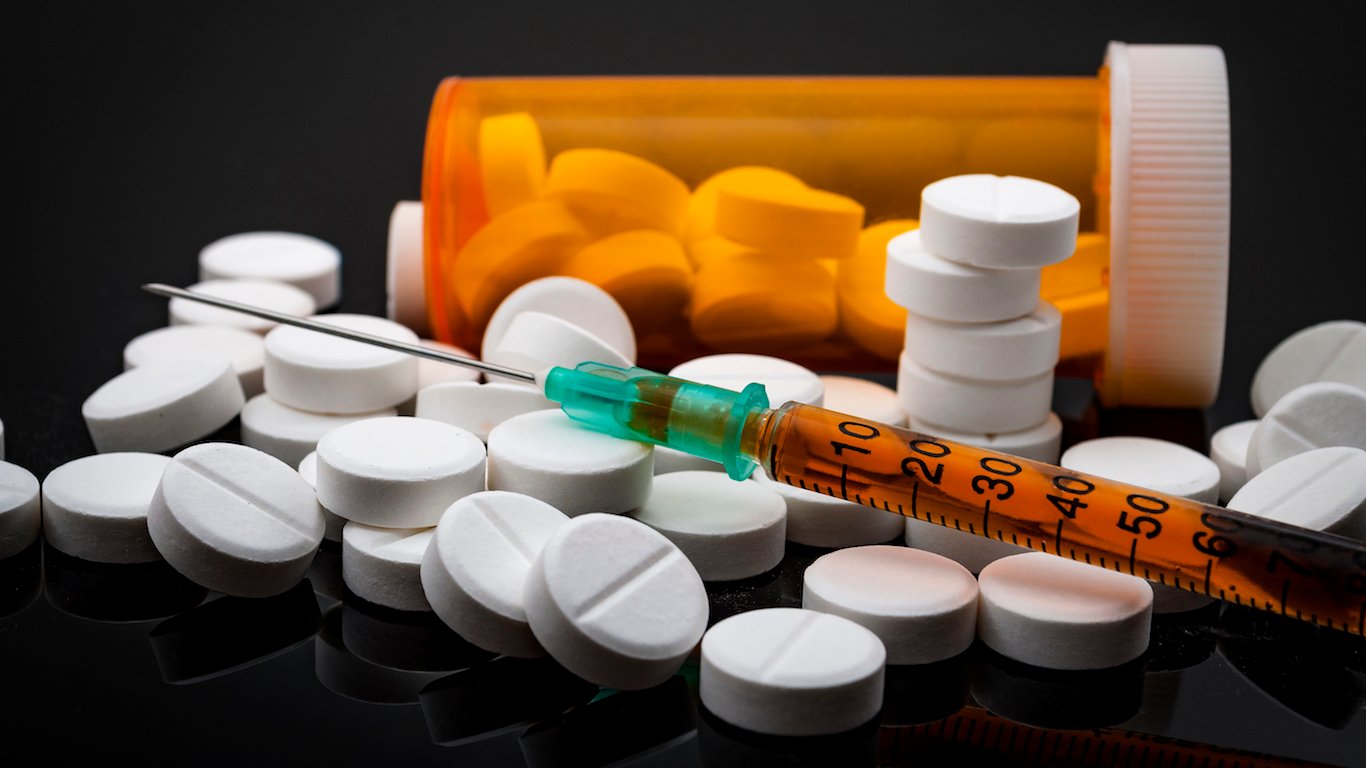Health and Healthcare
What It Means for Gilead to Launch Its Own Generics for Hepatitis C Treatments

Published:
Last Updated:

There is one fairly new effort for drug companies to mitigate the threat of generic drugs and for biotech companies to mitigate the threat of biosimilars. They can just launch their own. Several large drug and biotech companies have done so in recent years, and this is what is being seen at Gilead Sciences Inc. (NASDAQ: GILD).
Gilead announced on Monday that it would sell authorized generic versions of its Harvoni and Epclusa chronic hepatitis C therapies. The move will start in January of 2019, and the prior list price of $96,000 per year will drop to $24,000 for the generic version.
One more benefit to Gilead is that wholesalers appear to get a lower percentage of the sales, and pharmacy benefit managers will not get the rebates that they were used to in the branded drug sales.
Gilead has claimed that the average price paid for each bottle of medicine has dropped by more than 60% off the list prices since the launch of its first hep-C medication in 2013, when considering the prices for health insurers and government payers.
Still, Gilead did say that these discounts may not always translate into lower costs for patients due to the complexity and structure of the U.S. health care system. Gilead also said that existing contracts and the laws associated with government pricing policies have made it challenging to quickly lower list prices once it a drug is on the market. The authorized generics being offered by Gilead were said to be priced to more closely reflect the discounts that health insurers and government payers receive.
Gilead went on to show that insurance companies will have the choice of offering either the authorized generics or the branded medications for both Epclusa and Harvoni. Gilead said:
In the Medicare Part D setting, the authorized generics could save patients up to $2,500 in out-of-pocket costs per course of therapy. The authorized generics will also offer substantial savings to state managed Medicaid plans that do not currently benefit from negotiated rebates and that represent a significant number of people in need, potentially opening up access to our medications to beneficiaries who were previously denied coverage.
If this move sounds outlandish — why one of the world’s top biotech outfits would offer a generic of its own for a brand name — the R&D dollars have already been spent and the notion that some is better than none applies if you consider that a generic offered by an outside company is effectively nothing back to the company.
It’s also important to consider that Gilead already had forecast a big slide lower on its hep-C revenues earlier in 2018. Gilead projected in the first quarter of 2018 that its hep-C group sales, which had been about $9.1 billion in 2017, would go down to a level of $3.5 billion to $4.0 billion in 2018. Now consider that the hep-C portfolio generated close to $20 billion in 2015 revenues and already had been sliding since that peak due to new competition and a declining patient population, which it helped to cure.
Gilead shares were trading up 0.4% at $75.81 on Monday morning, in a 52-week range of $64.27 to $89.54. The consensus analyst target price from Thomson Reuters is $88.00.
Ever wanted an extra set of eyes on an investment you’re considering? Now you can speak with up to 3 financial experts in your area for FREE. By simply
clicking here you can begin to match with financial professionals who can help guide you through the financial decisions you’re making. And the best part? The first conversation with them is free.
Click here to match with up to 3 financial pros who would be excited to help you make financial decisions.
Thank you for reading! Have some feedback for us?
Contact the 24/7 Wall St. editorial team.